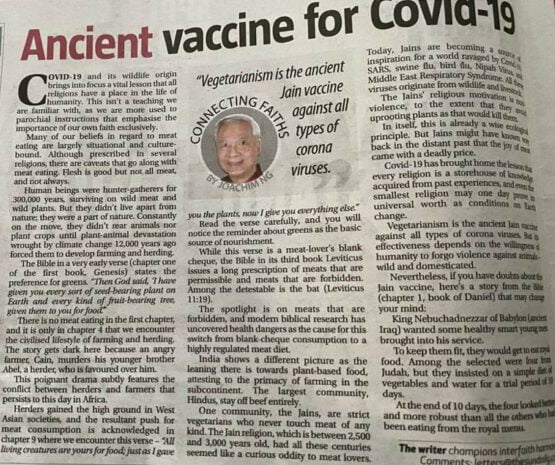
Malaysia News Paper
COVID-19 and its wildlife origin brings into focus a vital lesson that all religions have a place in the life of humanity. This isn’t a teaching we are familiar with, as we are more used to parochial instructions that emphasise the importance of our own faith exclusively.
Many of our beliefs in regard to meat eating are largely situational and culture-bound. Although prescribed in several religions, there are caveats that go along with meat eating. Flesh is good but not all meat, and not always.
Human beings were hunter-gatherers for 300,000 years, surviving on wild meat and wild plants. But they didn’t live apart from nature; they were a part of nature. Constantly on the move, they didn’t rear animals nor plant crops until plant-animal devastation wrought by climate change 12,000 years ago forced them to develop farming and herding.
The Bible in a very early verse (chapter one of the first book, Genesis) states the preference for greens. “Then God said, ‘I have given you every sort of seed-bearing plant on Earth and every kind of fruit-bearing tree, given them to you for food’.”
There is no meat eating in the first chapter, and it is only in chapter 4 that we encounter the civilised lifestyle of farming and herding. The story gets dark here because an angry farmer, Cain, murders his younger brother Abel, a herder, who is favoured over him.
This poignant drama subtly features the conflict between herders and farmers that persists to this day in Africa.
Herders gained the high ground in West Asian societies, and the resultant push for meat consumption is acknowledged in chapter 9 where we encounter this verse – “All living creatures are yours for food; just as I gave you the plants, now I give you everything else.”
Source: TheSun- follow Jain lifestyle to prevent virus outbreak